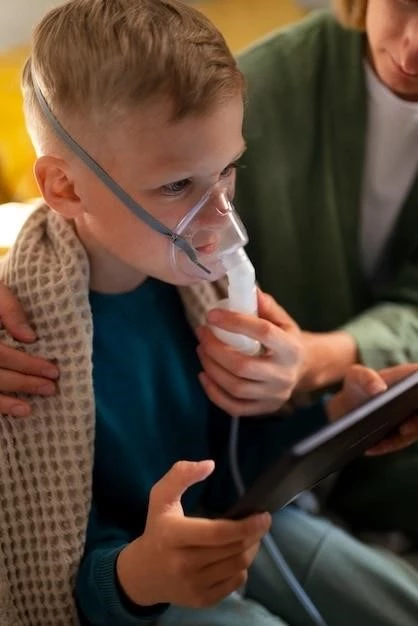Overview of Monosomy 2p22
The overview of Monosomy 2p22 provides insight into the genetic condition characterized by the deletion of a portion of chromosome 2 at position p22. This rare chromosomal abnormality can lead to a variety of physical and developmental symptoms, impacting individuals in different ways.
Definition and Explanation
Monosomy 2p22 is a genetic condition characterized by the deletion of a section of chromosome 2 at the p22 position. This deletion can result in various physical and developmental abnormalities due to the loss of genetic material. Individuals with Monosomy 2p22 may experience a range of symptoms that can impact their overall health and well-being. Understanding the genetic nature of this condition is crucial for accurate diagnosis and appropriate management of the associated challenges.
Symptoms of Chromosome 2 Deletion
Physical Symptoms
Physical symptoms of Chromosome 2 deletion, such as facial abnormalities, heart defects, limb malformations, and growth delays, are common in individuals with Monosomy 2p22. Other manifestations may include brain anomalies, kidney issues, and difficulties with feeding. These physical signs vary in severity and can impact multiple body systems, requiring a comprehensive approach to medical care and intervention.
Developmental Symptoms
Developmental symptoms associated with Chromosome 2 deletion can include intellectual disabilities, speech and language delays, motor skill impairments, and behavioral challenges. Children with Monosomy 2p22 may exhibit difficulties in learning, social interaction, and adaptive behaviors as they grow and develop. Early intervention and multidisciplinary support are crucial to address these developmental challenges and optimize the overall well-being and quality of life of affected individuals.
Causes of Monosomy 2p22
The causes of Monosomy 2p22 are primarily genetic, resulting from the deletion of a segment of chromosome 2 at the p22 position. This chromosomal abnormality can occur spontaneously or be inherited from a parent carrying the deletion. Understanding the genetic mechanisms underlying Monosomy 2p22 is essential for accurate diagnosis and genetic counseling.
Genetic Causes
Monosomy 2p22 is primarily caused by the deletion of a portion of chromosome 2 at position p22. This genetic anomaly may result from chromosomal rearrangements during development or be inherited from a parent. The loss of genetic material on chromosome 2 can lead to the characteristic symptoms and developmental issues associated with Monosomy 2p22. Understanding the specific genetic causes is crucial for making informed decisions regarding medical management and potential interventions.
Diagnosis and Genetic Testing for Chromosome 2 Disorders
Diagnostic Procedures
Diagnostic Procedures
Diagnosis of Chromosome 2 disorders, including Monosomy 2p22, typically involves thorough physical examinations, medical history assessments, and genetic testing such as chromosomal microarray analysis or fluorescence in situ hybridization (FISH) to identify chromosomal abnormalities. Additional diagnostic procedures may include imaging studies to evaluate organ structure and function. A comprehensive approach to diagnosis is essential to determine the specific genetic condition and guide appropriate treatment strategies.
Genetic Testing Options
Genetic testing options for Chromosome 2 disorders, such as Monosomy 2p22, include chromosomal microarray analysis, karyotyping, FISH, and whole exome sequencing. These tests help identify chromosomal abnormalities, detect deletions or rearrangements on chromosome 2, and determine the specific genetic cause of the condition. Genetic testing provides valuable information for accurate diagnosis, genetic counseling, and personalized treatment planning for individuals with Chromosome 2 deletion disorders.
Treatment Options for Monosomy 2p22
Medical Interventions
Medical Interventions
Medical interventions for Monosomy 2p22 focus on addressing individual symptoms and complications. Treatment may include surgical procedures to correct cardiac abnormalities, physical therapy to improve motor skills, speech therapy for communication challenges, and early intervention programs to support developmental delays. Multidisciplinary care involving medical specialists, therapists, and educators is essential for managing the complex needs of individuals with Chromosome 2 deletion and optimizing their overall quality of life.
Research Advances in Chromosome 2 Abnormalities
Current Research Studies
Current Research Studies
Ongoing research on Chromosome 2 abnormalities, including Monosomy 2p22, is focused on identifying new genetic markers, understanding the molecular mechanisms underlying the condition, and developing targeted therapies to address specific symptoms. Collaborative studies are investigating the impact of gene expression patterns, exploring potential treatments, and improving diagnostic tools for individuals with Chromosome 2 disorders. These research efforts aim to advance medical knowledge, enhance patient care, and ultimately improve outcomes for individuals affected by Monosomy 2p22.

Support Resources for Individuals with Chromosome 2 Deletion
Support Groups
Support Groups
Support groups play a crucial role in providing emotional support, sharing information, and connecting individuals and families affected by Chromosome 2 deletion disorders like Monosomy 2p22. These groups offer a sense of community, resources for coping with challenges, and a platform for exchanging experiences. Through support groups, individuals can find solidarity, guidance, and encouragement in navigating the complexities of living with a rare genetic condition, fostering resilience and empowerment.
Prognosis and Long-Term Outlook for Monosomy 2p22
Long-Term Prognosis
Long-Term Prognosis
The long-term prognosis for individuals with Monosomy 2p22 varies depending on the severity of symptoms and the presence of associated health issues. Early intervention, comprehensive medical care, and ongoing support can enhance the quality of life and improve outcomes for affected individuals. Long-term management may involve a multidisciplinary approach to address physical, developmental, and educational needs. Continued research and advancements in medical care offer hope for better long-term outcomes and quality of life for individuals with Monosomy 2p22.
